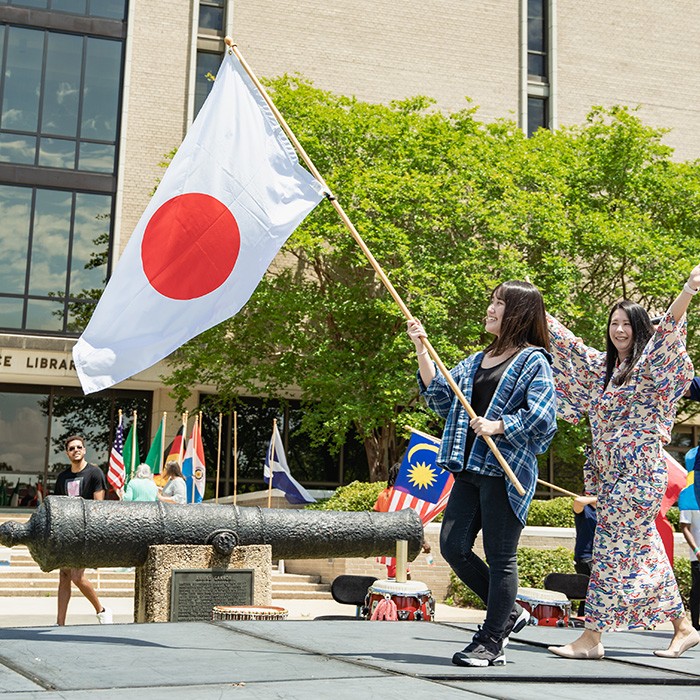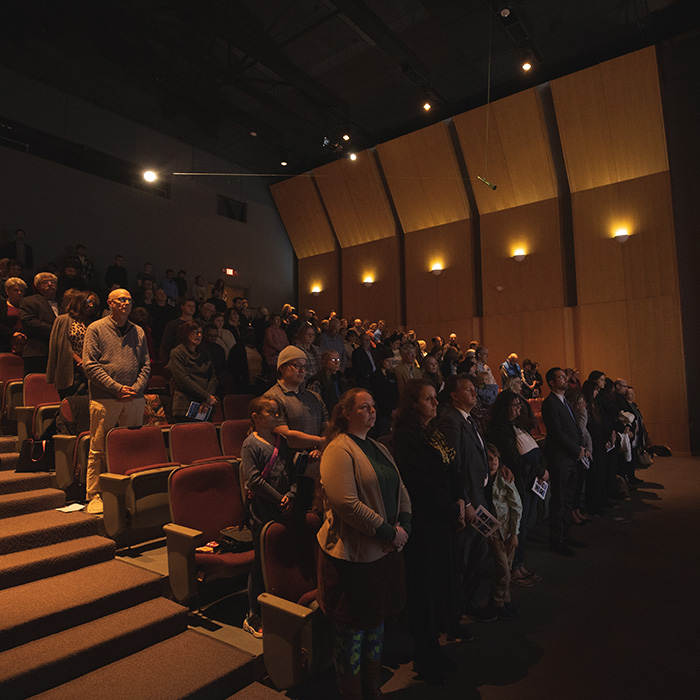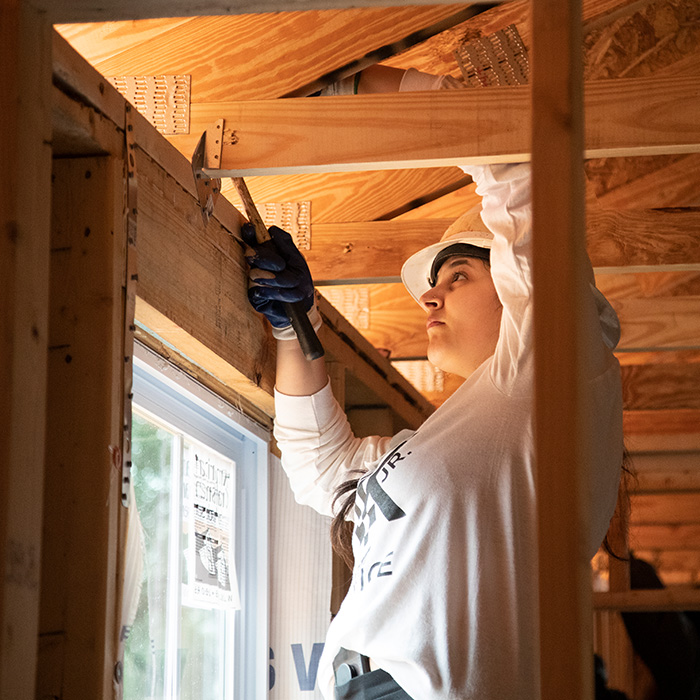Campus Culture
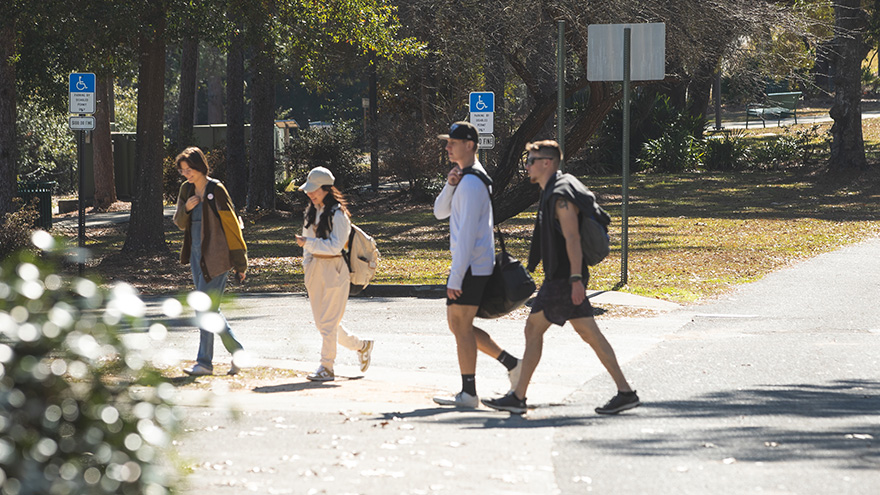
Campus Culture is committed to fostering a culture of inclusion and civility by nurturing a welcoming, inclusive, equitable, and respectful environment for employees, students, visitors, and service partners. Campus Culture serves to create experiences and events that enhance a sense of belonging, open-minded and tolerant civil discourse, and intercultural awareness across the UWF community.
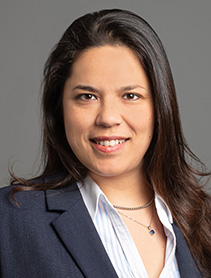
Letter from the Director
Dear Members of the UWF Community,
At UWF, we celebrate our campus culture as the values, beliefs, traditions, and identities that both make us unique and bring us together as one community. As an institution of higher learning, we foster an environment that values critical thinking and rigorous debate. As students and scholars, we value decency, civility, freedom, and mutual respect.
In light of the rising incidents of antisemitism and islamophobia on college campuses across the country, it is evermore important that we remember the shared values that connect us. At UWF, all students, faculty, and staff have a right to learn and work in an environment free from harassment and discrimination.
At UWF, we value free speech, even when the right to free expression may cause offense. We recognize our freedoms do not include the right to harass others or stifle the dissemination of contrary ideas.
UWF’s Office of Campus Culture and Access is here to promote civility, equal access, and a respectful campus culture. We invite you to visit us in person or online at uwf.edu/occa.
Aurora Osborn
Interim Director
---
We want to make sure that our UWF community is aware of available support resources:
Counseling and Psychological Services
850.474.2420 - available 24/7
Employee Assistance Program
hr@uwf.edu
Equal Opportunity Office
eop@uwf.edu
U.S. Department of Education, Office of Civil Rights
ocr@ed.gov
Civil Discourse and Free Expression at UWF
UWF is committed to supporting and encouraging a full and open discourse and the robust exchange of ideas and perspectives on our respective campuses.
The principles of freedom of speech and freedom of expression in the United States and Florida Constitutions, in addition to being legal rights, are an integral part of our three-part university mission to deliver a high-quality academic experience for our students, engage in meaningful and productive research, and provide valuable public service for the benefit of our local communities and the state.
Student Resources
- Counseling and Psychological Services
- Dean of Students Office
- Student Ombuds
- Student Rights and Responsibilities
- Title IX Programs
- University Police
Faculty and Staff Resources
Civil Discourse Statement and Policies
UWF/REG – 5.050 Title: Speech, Assembly and Public Expression in Outdoor Areas on Campus
I. Freedom of Speech, Assembly and Public Expression
The freedoms of speech, peaceful assembly, and expression are basic and essential freedoms that the University strives to protect. Reasonable time, place, and manner restrictions will be enforced so that the activities do not materially and substantially disrupt the orderly functioning of the University, infringe upon or interfere with the academic programs and administrative processes of the University, or upon the rights of other individuals or organizations to engage in expressive activities. Enforcement will be content neutral.
II. Definitions
For purposes of this regulation, the following definitions shall apply:
a. Commercial Speech. Commercial speech means speech in which the individual is engaged in commerce, the intended audience is commercial or actual or potential consumers, and the content of the message is commercial.
b. Expressive Activities. Expressive activities are activities such as assemblies, exercise of free speech, protests, demonstrations, marches, and picketing protected under the First Amendment to the United States Constitution and Article 1 of the Florida Constitution. Expressive activity, for purposes of this regulation, does not include commercial speech.
c. Outdoor areas of campus. Outdoor areas of campus are generally accessible areas of the University’s Pensacola campus in which members of the campus community are commonly allowed, including grassy areas, walkways, or other similar common areas. The term does not include outdoor areas of campus to which access is restricted. Outdoor areas of campus specifically do not include any buildings or other indoor facilities. Restricted areas. Restricted areas include areas designated by the President or designee(s) either temporarily or permanently as restricted, parking facilities/areas, athletic or recreational facilities, fields and stadiums unless written permission is granted by the 2 University.
d. University Community. The University Community consists of the University of West Florida faculty, staff, all other personnel and students. e. University Organization(s). University Organization(s) are recognized University organizations, faculty, staff and all other personnel organizations and registered University student organizations. This definition excludes individuals, groups, and/or organizations sponsored by or affiliated with UniversityOrganization(s).
III. Orderly Conduct, Processes and Functions of University
Faculty, staff, all other personnel and students, who intentionally act to impair, interfere with, or obstruct the orderly conduct, processes, and functions of the University shall be subject to appropriate disciplinary action by Universityauthorities.
IV. Speech, Assembly and Public Expression
Subject to the terms of this regulation and related University regulations, expressive activities are permitted in outdoor areas of campus so long as the conduct is lawful and does not materially and substantially disrupt the normal operations and functions of the University or infringe on the rights of other members of the University community, except that no demonstrations are permitted inside University buildings without the express written authorization from the University. Any use of amplification equipment on the outdoor areas of campus must have prior written clearance through the Department of Environmental Health and Safety and will be permitted only if there is no interference or disruption of any academic or other University activities. Use of outdoor areas must also be consonant with all other University regulations and policies including, but not limited to the regulations and policies governing commercial speech and activity, distribution of written materials, and use of facilities.
V. Prohibited Interference
All persons and organizations conducting expressive activities in outdoor areas of campus must abide by the general requirement that no such activities may materially or substantially interfere with, disrupt, or impede the normal operations of the University. In order that demonstrators not materially and substantially interfere with the operation of the University or the rights of others, all events conducted pursuant to this regulation shall not: obstruct vehicular, bicycle, pedestrian, or other traffic;
(a) obstruct entrances or exits to buildings or driveways;
(b) interfere with educational activities inside or outside any building;
(c) pose a health or safety threat to the University, the University Community, University Organizations, or the general public;
(f) interfere with or preclude a scheduled speaker from being heard; 3
(g) use fighting words to inflict violence or incite a reasonable person to violence or other breach of the peace by their mere utterance;
(h) damage property of the University, including lawns, shrubs, or trees;
(i) use sound amplification, including bullhorns, except as approved in advance in writing as set forth in this regulation and within sound limits that will not disrupt normal University operations;
(j) harass passersby or otherwise disrupt normal activities;
(k) interfere with scheduled University ceremonies or events.
VI. Duty to Identify for Disruptive Action or Conduct
In the event of disruptive action or conduct, University employees and students involved in demonstrations shall identify themselves by presenting appropriate documents such as ID cards when requested to do so by the President or designee(s), and such representative will identify her/himself when making this request. Demonstrators not officially related to the University of West Florida will be directed to leave the campus immediately or be subject to arrest for a violation of the law forbidding the disruption or interference with the administration or functions of an educational institution. VII. Disruption of Normal University Operations, Infringement on Rights of Others If, in the opinion of the President or designee(s), a demonstration is disrupting normal University operations or infringing on the expressive rights of other members of the University community, the President or designee(s) may:
(a) identify her/himself to the demonstrators, giving name and official position;
(b) inform the demonstrators that they are in violation of the University regulation/policy and/or in violation of the law and specify the nature of the violation;
(c) request that the violation cease; and
(d) in the event of non-compliance with this request, enlist the assistance of the University Police in restoring order and enforcing the law.
VIII. University Police
The University Police, as the President’s designated representatives, have a responsibility to: declare an expressive activity to be in violation of law and request all demonstrators to cease and desist and to disperse and clear the area or be subject to arrest and/or University disciplinary action;
(a) arrest any demonstrators observed to be in violation of the law; and
(b) enlist the assistance of outside law enforcement agencies, or other agencies, if necessary. Nothing contained in this regulation is intended to limit or restrict the authority of the 4 University of West Florida Police Department or other law enforcement personnel under applicable laws or University regulations, policies and procedures.
IX. Notice to University and Request for Use of Amplification Equipment
Although it is not necessary for a person to obtain prior permission from the University for expressive activities, it is strongly encouraged that such persons contact the University Commons and Event Services office for scheduling purposes at least two (2) business days in advance in order to make adequate arrangements for safety and security and to assure such activities do not interfere with the University’s mission and operations. The University Commons and Event Services office may be contacted at the University of West Florida, 11000 University Parkway, Building 22, Pensacola, Florida 32514; 1.850.474.2406, 1.850.857.6117 or servicedesk@uwf.edu
Request for permission to use amplification equipment may be submitted in writing to the University of West Florida, Department of Environmental Health and Safety, 11000 University Parkway, Building 95, Pensacola, Florida 32514-5750, 1.850.474.2525, facsimile 1.850.857.6425 or envhs@uwf.edu at least two (2) business days in advance.
Any person or organization that is denied permission for a proposed use of amplification may appeal such denial in writing to the Provost or his/her designee within two (2) business days after receipt of a written denial from the Department of Environmental Health and Safety.
Nothing herein shall be interpreted as limiting the right of expressive activity so long as the expressive activities do not violate any content neutral law, regulation, policy or other restrictions designated in this regulation.
X. Exclusions
This regulation does not govern commercial speech and the handing out of pamphlets or other printed material at the University. Commercial speech and distribution of written materials at the University of West Florida is governed by the regulations, policies and rules addressing those respective topics. Use of University buildings and facilities are governed by UWF Regulation 2.005, not this regulation.
Specific Authority: Florida Statutes §§ 877.13, 1001.706, 1004.097, 1006.61.
History: New 10-1-75, Formerly FAC Rule 6 C6-3.014, Amended 5-31-87; Converted to UWF/REG 3.014-7/21/05, Amended 12/16/2013; Amended and converted to UWF/REG 5.050 7/27/2017; 10/12/2018.
The State University System of Florida and its twelve public postsecondary institutions adopt this Statement on Free Expression to support and encourage full and open discourse and the robust exchange of ideas and perspectives on our respective campuses. The principles of freedom of speech and freedom of expression in the United States and Florida Constitutions, in addition to being legal rights, are an integral part of our three-part university mission to deliver a high quality academic experience for our students, engage in meaningful and productive research, and provide valuable public service for the benefit of our local communities and the state. The purpose of this Statement is to affirm our dedication to these principles and to seek our campus communities’ commitment to maintaining our campuses as places where the open exchange of knowledge and ideas furthers our mission.
A fundamental purpose of an institution of higher education is to provide a learning environment where divergent ideas, opinions and philosophies, new and old, can be rigorously debated and critically evaluated. Through this process, often referred to as the marketplace of ideas, individuals are free to express any ideas and opinions they wish, even if others may disagree with them or find those ideas and opinions to be offensive or otherwise antithetical to their own world view. The very process of debating divergent ideas and challenging others’ opinions develops the intellectual skills necessary to respectfully argue through civil discourse. Development of such skills leads to personal and scholarly growth and is an essential component of the academic and research missions of each of our institutions.
It is equally important not to stifle the dissemination of any ideas, even if other members of our community may find those ideas abhorrent. Individuals wishing to express ideas with which others may disagree must be free to do so, without fear of being bullied, threatened or silenced. This does not mean that such ideas should go unchallenged, as that is part of the learning process. And though we believe all members of our campus communities have a role to play in promoting civility and mutual respect in that type of discourse, we must not let concerns over civility or respect be used as a reason to silence expression. We should empower and enable one another to speak and listen, rather than interfere with or silence the open expression of ideas.
Each member of our campus communities must also recognize that institutions may restrict expression that is unlawful, such as true threats or defamation. Because universities and colleges are first and foremost places where people go to engage in scholarly endeavors, it is necessary to the efficient and effective operations of each institution for there to be reasonable limitations on the time, place, and manner in which these rights are exercised. Each institution has adopted regulations that align with Florida’s Campus Free Expression Act, section 1004.097, Florida Statutes, and with the United States and Florida Constitutions and the legal opinions interpreting those provisions. These limitations are narrowly drawn and content-neutral and serve to ensure that all members of our campus communities have an equal ability to express their ideas and opinions, while preserving campus order and security.
At the University of West Florida, learning involves a variety of ideas, theories, and evidence. Presentation of these ideas does not represent an endorsement of any one idea or perspective.
It is vital to the UWF academic mission that we foster an environment that allows for the open exchange of ideas and perspectives to advance the learning objectives for each course. Civil discourse within and outside the classroom is a vital component of the UWF academic environment and is expected of everyone who belongs to the UWF community. Students and faculty may engage with complex ideas in class and students will often be asked to demonstrate an understanding of the ideas. Understanding an idea, concept, or theory does not require endorsing or agreeing with it, but rather hearing and considering its strengths and weaknesses. More information about civil discourse can be found in resources on the Campus Culture Civil Discourse website.




